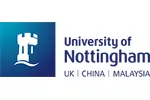

the United Kingdom
University of Nottingham| The award | How you will study | Study duration | Course start | Domestic course fees | International course fees |
|---|---|---|---|---|---|
| MSc | Full-time, Part-time | 1 - 4 year | September | find out | find out |
The MSc in Sports and Exercise Medicine is respected across the medical and sporting professions.
This course is primarily designed for medical practitioners and physiotherapists, with at least two years experience as practising health care professionals, who wish to develop their knowledge and skills at managing sports injuries and promoting physical activity for health.
Entry requirements: 2.1
IELTS: 7.0 (with no less than 6 for each element)
TOEFL paper based: 600 (with a TWE score of at least 5)
TOEFL IBT: 100 with no less than 19 in any element
Key facts
Course Content
As an MSc student, you will study a series of core modules in Sports and Exercise Medicine. These are currently:
Please note that all module details are subject to change.
In addition, you will be required to take a compulsory module in Research Methods as preparation for your 50-credit Project and Dissertation module.
The dissertation is an exciting opportunity to undertake research on a subject related to Sports and Exercise Medicine or Exercise Physiology under the supervision of an appropriate member of academic staff.
Course Structure
The MSc in Sports and Exercise Medicine can be taken on a full-time basis over one year (September to September) or part-time over two years.
The syllabus is covered by lectures, seminars and practicals, and - for full-time students - it is usually delivered on Tuesdays and Thursdays. The other weekdays are intended for private study, production of written reports and presentations, clinic attendance and research.
You will undertake a research project and prepare a dissertation in the second semester and this work will continue through the summer vacation. The dissertation is submitted by the end of August.
Your work will be assessed by a number of methods including both written and practical examinations, oral presentations, as well as the dissertation.
The part-time course is identical in content to the full-time course, but teaching in Nottingham takes place on one day per week during the semester (Thursdays for courses starting in 2009).
As a part-time student, you will be expected to devote the equivalent of an additional day and a half per week to private study, production of written reports and presentations and research.
Research begins during the first year and continues through the summer into the second year. The dissertation is submitted in May in the second year.
As a full- or part-time student, you may have the option to attend the Soft Tissue Injury Clinics run at Queen's Medical Centre, Nottingham, and various other clinics in the region during the course.
For full-time students, clinics will be mainly on Mondays, Tuesdays and Thursdays, while for part-time students, they will be on Thursdays (for the 2009 intake).
Contact University of Nottingham to find course entry requirements.
Below are some suggested courses at other providers that you may also be interested in:
Digital International Relations & Diplomacy (UNITAR) Master Degree
EU Business School, Geneva
Find out moreIf you do not meet the entry requirements for this course then consider one of these postgraduate preparation courses from another institution:
Graduate Diploma of Engineering (Civil: Structural)
Engineering Institute of Technology
Find out moreThere are 577 other courses listed from University of Nottingham. A selection of these are displayed below:
Academic English and Study Skills Preparation programmes Master's Qualifying Programme
University of Nottingham
Find out moreAdditive Manufacturing and 3D printing (Centre for Doctoral Training) PhD
University of Nottingham
Find out moreFind out more about studying in the United Kingdom